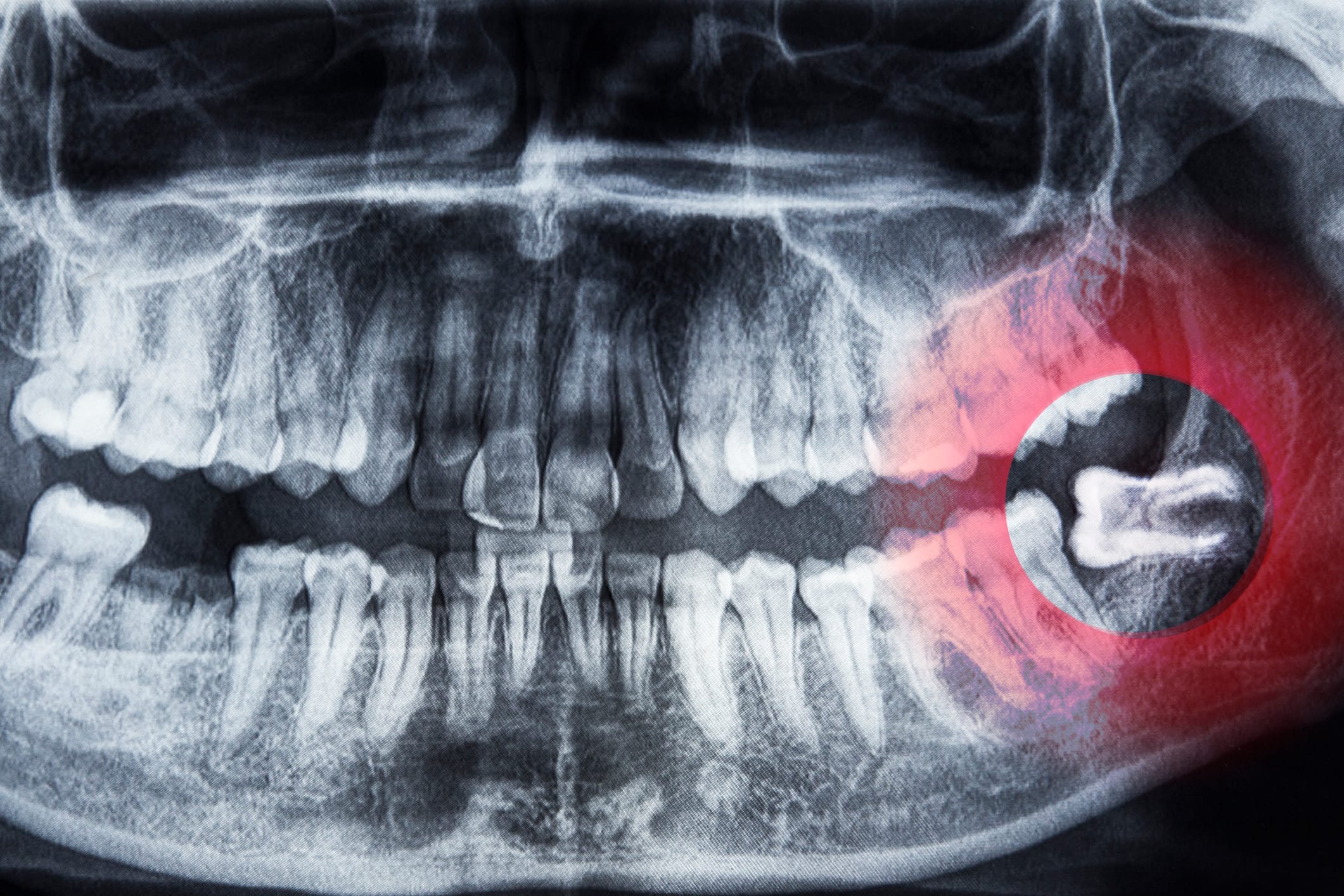What makes wisdom teeth a problem?
Wisdom teeth are the last set of adult teeth to erupt, and by the time they arrive, there often isn’t enough room left in your jaw. When a tooth gets stuck or only partially emerges, known as impaction, it can lead to significant issues.
In the UK, the National Institute for Health and Care Excellence (NICE) advises that wisdom teeth should only be removed if they show signs of pathology (disease or problems), not simply because they are impacted.
Reasons we may recommend a wisdom tooth extraction include:
- Repeated infection (Pericoronitis): When gum tissue traps food and bacteria around a partially emerged tooth, causing painful swelling and infection.
- Untreatable tooth decay: If the tooth is positioned so far back that it is impossible to clean properly, leading to decay in the wisdom tooth or the adjacent molar.
- Cysts or abscesses: Infections that cause a collection of pus or fluid-filled sacs around the tooth.
- Gum disease: The impacted tooth is contributing to severe gum disease.





